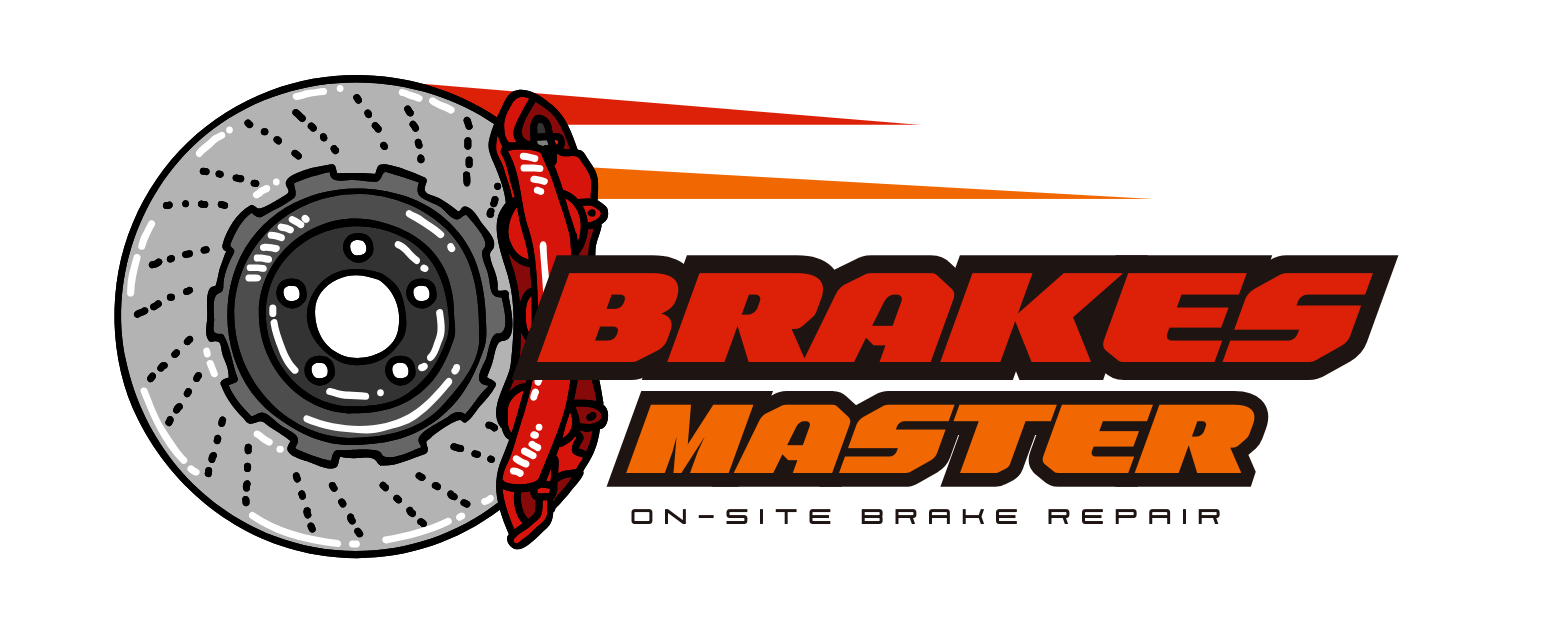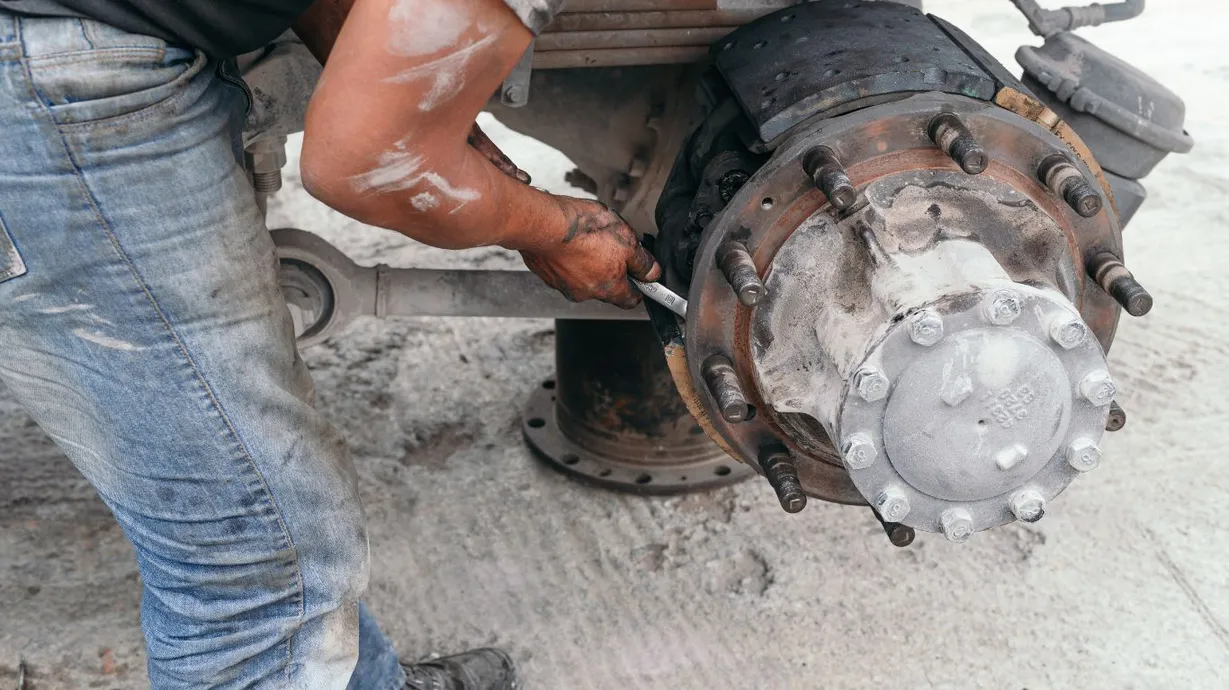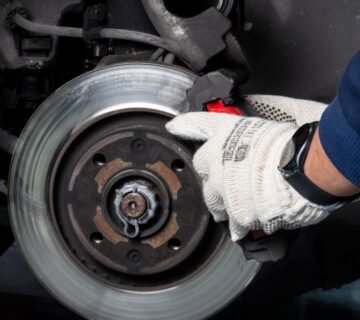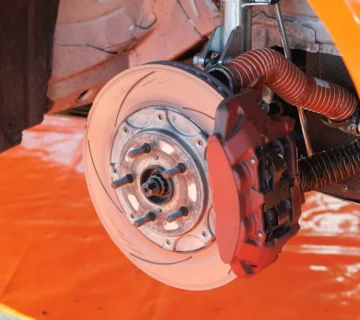Understanding Brake Performance: Key Concepts and Importance

Brake performance is a crucial aspect of vehicle safety and efficiency. It involves the ability of a vehicle’s brake system to bring the car to a stop in a controlled, reliable manner. Understanding this concept is vital for any driver who prioritizes safety and aims to maintain their vehicle in optimal condition. The performance of brakes can significantly influence the overall driving experience, affecting everything from stopping distances to handling in emergency situations.
The importance of brake performance cannot be overstated. It’s a critical factor in preventing accidents and ensuring the safety of not only the driver and passengers but also other road users. A well-maintained brake system can mean the difference between a smooth stop and a dangerous collision. As such, regular maintenance and awareness of your brake system’s condition are essential.
In addition to safety, efficient brake performance contributes to the vehicle’s economic operation. Properly functioning brakes can enhance fuel efficiency and reduce wear and tear on other components, ultimately saving money on repairs and replacements. Thus, investing time in understanding and maintaining brake performance is both a safety measure and a cost-saving strategy.
Factors Affecting Brake Performance
Several factors can influence the performance of a vehicle’s brakes. Understanding these factors can help in diagnosing issues and implementing effective solutions. One of the primary factors is the condition of the brake pads. Worn-out brake pads can significantly reduce stopping power, leading to longer braking distances and increased risk of accidents.
Another critical factor is the condition of the brake rotors. Warped or damaged rotors can cause vibrations and reduce the efficiency of the braking system. It’s essential to regularly inspect these components and replace them when necessary to maintain optimal brake performance. Additionally, environmental conditions such as wet or icy roads can adversely affect brake performance, requiring drivers to be vigilant and adjust their driving accordingly.
Finally, the type and quality of brake fluid used can have a profound impact on braking efficiency. Brake fluid is responsible for transferring the force from the brake pedal to the brake pads, and its condition can deteriorate over time due to moisture absorption. Regularly checking and replacing brake fluid is crucial to ensure that the brakes are responsive and effective.
Common Brake Performance Issues and Their Solutions
Several common issues can arise with brake performance, each requiring specific solutions to address effectively. One prevalent problem is brake fading, which occurs when the brakes overheat and lose their ability to generate friction. This can happen during prolonged braking or when driving downhill. To mitigate this, it’s essential to use the brakes sparingly and allow them to cool whenever possible.
Another issue is the presence of spongy or soft brake pedals, which can indicate air in the brake lines or a leak in the brake system. This situation demands immediate attention, as it can severely compromise braking power. Bleeding the brake system to remove air or repairing any leaks can restore the brakes to proper function.
Squealing or grinding noises when braking can also signal issues with brake performance. These sounds often indicate worn-out brake pads or damaged rotors. Replacing the pads and resurfacing or replacing the rotors can resolve the noise and restore effective braking. Regular inspection and maintenance can prevent these issues from escalating into more significant problems.
Innovative Technologies for Enhanced Brake Performance
The automotive industry continuously innovates to improve brake performance, integrating advanced technologies for safer and more efficient vehicles. One such innovation is the Anti-lock Braking System (ABS), which prevents wheel lockup during emergency braking, allowing drivers to maintain steering control. ABS has become a standard feature in modern vehicles, significantly enhancing safety.
Another technological advancement is Electronic Brake-force Distribution (EBD). EBD optimizes brake force distribution between the front and rear wheels, ensuring balanced braking and reducing the risk of skidding. This technology works in tandem with ABS to provide a more stable and controlled stopping experience.
Brake-by-wire systems represent the future of brake technology. These systems replace traditional hydraulic systems with electronic controls, offering faster response times and improved precision. Brake-by-wire technology reduces weight and complexity, contributing to better overall vehicle performance. As these technologies become more widespread, they will continue to elevate the standard for brake performance.
Expert Tips for Maintaining Optimal Brake Performance
Maintaining optimal brake performance requires regular attention and care. Here are some expert tips to ensure your brakes remain in top condition:
- Routine Inspections: Regularly inspect brake pads, rotors, and fluid levels. Look for signs of wear, damage, or contamination.
- Timely Replacements: Replace brake pads and rotors as soon as they show significant wear. Delaying replacements can compromise braking efficiency and safety.
- Brake Fluid Checks: Monitor brake fluid levels and quality. Replace the fluid as recommended by the vehicle manufacturer to prevent moisture buildup and ensure proper hydraulic function.
By following these tips, drivers can prolong the lifespan of their brake systems and ensure they operate as effectively as possible. Remember, proactive maintenance is far more cost-effective than reactive repairs.
The Role of Brake Fluid in Performance
Brake fluid plays a pivotal role in the effectiveness of a vehicle’s brake system. It acts as a hydraulic fluid, transferring the force applied by the driver on the brake pedal to the brake pads. The type and condition of brake fluid can dramatically influence brake performance.
Over time, brake fluid can become contaminated with moisture, which reduces its boiling point and can lead to brake fade during high-temperature conditions. This makes regular brake fluid checks and replacements critical for maintaining optimal performance. Keeping the fluid clean and at the correct level ensures the brakes respond promptly and effectively.
There are different types of brake fluid, such as DOT 3, DOT 4, and DOT 5.1, each with varying boiling points and compositions. It’s essential to use the appropriate type for your vehicle to ensure compatibility and performance. Consulting the vehicle’s manual or a professional mechanic can provide guidance on the suitable brake fluid for your car.
Upgrading Your Brakes: When and Why to Consider It
Upgrading a vehicle’s brakes can be a wise decision, particularly for those who frequently drive in demanding conditions or have performance-oriented vehicles. Upgrades can enhance stopping power, reduce fade, and offer a more responsive braking experience. But when and why should one consider this investment?
Vehicle owners should consider upgrading their brakes if they notice consistently poor performance despite regular maintenance. This can manifest as longer stopping distances, frequent overheating, or a lack of responsiveness. High-performance brake pads and rotors can provide better heat dissipation and durability, making them ideal for those situations.
Another reason to upgrade is if the vehicle is used for towing or carrying heavy loads. The additional weight can strain the standard braking system, making it less effective. Upgraded brakes can handle the extra burden, ensuring safety and reliability. Ultimately, upgrading the brakes can enhance safety and performance, providing peace of mind for drivers.
Best Practices for Testing and Evaluating Brake Performance
To ensure that a vehicle’s brakes are functioning correctly, it’s important to regularly test and evaluate their performance. Here are some best practices for conducting these assessments:
- Visual Inspections: Start with a visual inspection of the brake components. Look for signs of wear, corrosion, or damage.
- Brake Pedal Test: With the engine running, press the brake pedal. It should feel firm and not sink to the floor. A spongy pedal may indicate air in the brake lines.
- Road Tests: Conduct road tests in a safe environment. Test the brakes at various speeds to ensure the vehicle stops smoothly and without pulling to one side.
- Listen for Unusual Noises: Pay attention to any squealing or grinding sounds during braking, as these may indicate worn-out components.
By following these practices, drivers can identify potential issues early and address them before they become serious problems. Regular testing ensures that the brakes are always ready to perform at their best.
Frequently Asked Questions About Brake Performance
Q1: How often should I replace my brake pads?
A1: Brake pads should typically be replaced every 30,000 to 70,000 miles, depending on driving habits and conditions. Regular inspections can help determine the right time for replacement.
Q2: What causes brake fade, and how can I prevent it?
A2: Brake fade is caused by overheating due to excessive use. To prevent it, avoid prolonged braking and use engine braking when descending hills.
Q3: Can I upgrade my brakes myself?
A3: While some brake upgrades can be done by skilled DIYers, it’s often best to consult a professional to ensure the job is done correctly and safely.
Conclusion: Mastering Your Vehicle’s Brakes for Safety and Efficiency
Mastering brake performance is a continuous journey that involves understanding, maintaining, and, when necessary, upgrading your vehicle’s braking system. By focusing on key components such as pads, rotors, and fluid, and by staying informed about innovative technologies and best practices, drivers can ensure their vehicles remain safe and efficient.
Remember, a well-functioning brake system is not just about ensuring safety; it’s also about enhancing the overall driving experience and vehicle longevity. By taking proactive steps to maintain and improve brake performance, you can enjoy peace of mind on the road.




